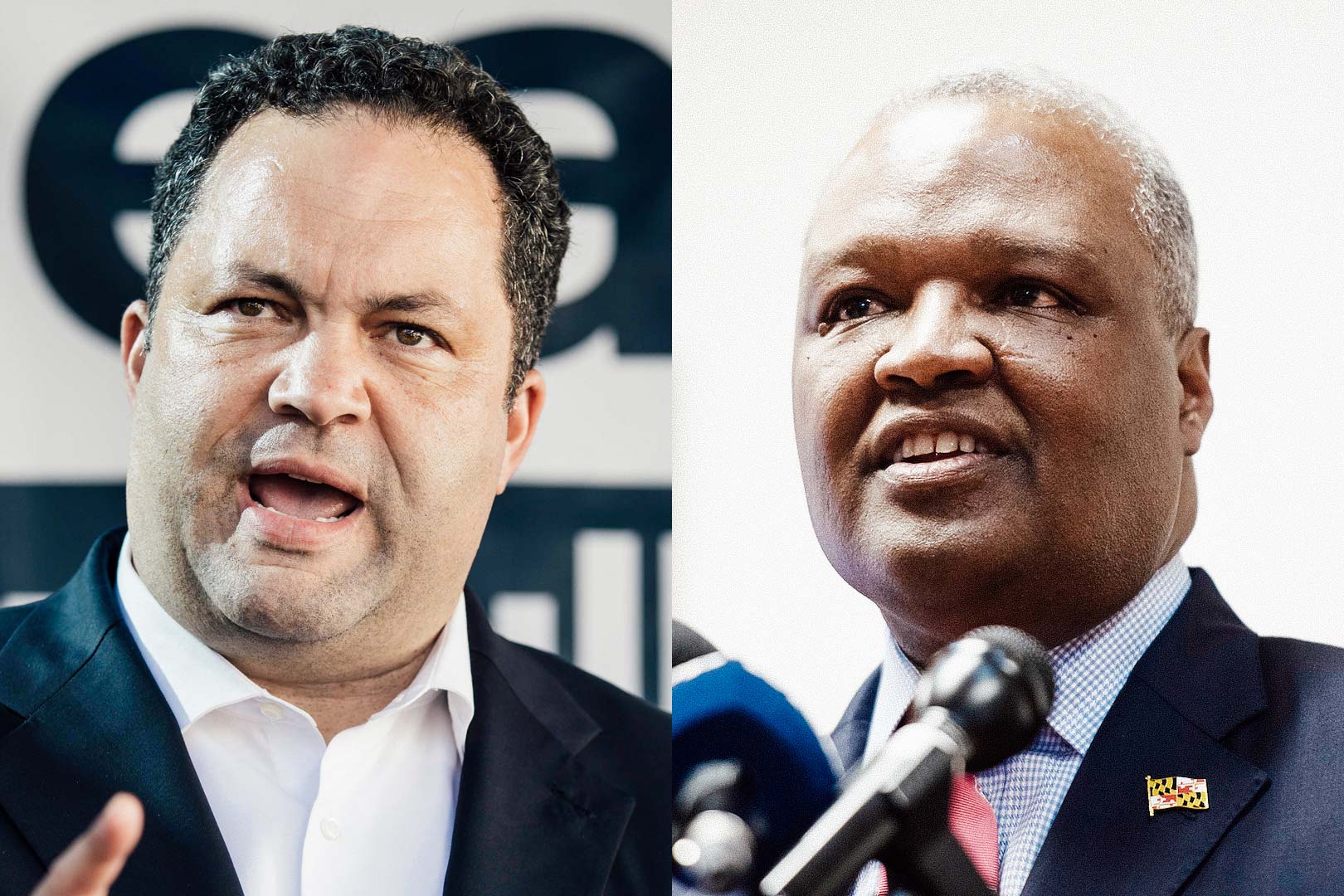Former NAACP president Ben Jealous won the Democratic nomination for Maryland governor on Tuesday, handing progressives another high-profile win in a contest that offered two competing visions for how the party should run this fall.
With the vast majority of the ballots counted, Jealous led his main rival, Prince George’s County executive Rushern Baker, by roughly 10 percentage points—40 percent to 30 percent, in a crowded field. If he can win again in November, Jealous would become the state’s first black governor. But history won’t come easy. Gov. Larry Hogan is widely popular in the state with both Republicans and Democrats, and he will enter the general election as the odds-on favorite. A Washington Post poll earlier this month found Hogan with a 12-percentage-point lead in a hypothetical matchup against the Democrat.
Jealous and Baker, who is also African American, plotted starkly different paths to defeating Hogan this November. Jealous’ strategy echoed the successful primary campaign in Georgia by Stacey Abrams, with a promise to mobilize disaffected liberals, especially voters of color, with calls for Medicare For All, a $15 minimum wage, and tuition-free college funded by ending mass incarceration. Baker shared some—though not all—of Jealous’ progressive agenda, and positioned himself as a pragmatist who could reach across the aisle and win over those moderate voters who helped elect Hogan in 2014 in a state that voted for the Democratic presidential nominee in the past seven elections, and by at least 25 percentage points in the last three.
Jealous’ campaign drew support from national progressives like Sens. Bernie Sanders, Kamala Harris, and Cory Booker, as well as outside groups like PowerPAC and the Working Families Party. Meanwhile, Baker, who backed Hillary Clinton in the 2016 primary, had the support of most of the state’s moderate Democratic establishment, including House Minority Whip Steny Hoyer, Sen. Chris Van Hollen, and former Gov. Martin O’Malley. The intraparty divide made the contest something of a proxy fight between the two wings of the Democratic Party, one where the battle lines were even more clear than they were in Georgia, where Abrams had the backing of Sanders and Hillary Clinton in her successful quest to become the Democratic nominee for governor. (Abrams also endorsed Jealous, and the two have known each other for a quarter-century.)
The race featured a diverse group of candidates hoping to make history. Krish Vignarajah, a lawyer and former policy director for Michelle Obama who had 8 percent of the vote, was hoping to become the state’s first female governor, and state Sen. Richard Madaleno—who released a TV ad last month in which he kissed his husband and declared, “Take that, Trump,” and who had 6 percent—the state’s first openly gay governor.
The Republican Governors Association wasted little time taking aim at Jealous after he was declared the winner. “Ben Jealous’ radical views make him unfit to serve as governor,” the group said in a statement that doubles as a preview of their general-election strategy. “Ben Jealous is promising to systematically undo all of the progress Maryland has made over the past four years by hiking taxes to never-before-seen levels in order to fund his radical pie-in-the-sky spending plans.”
Jealous, however, has promised to continue on the progressive path he set out on. “Our campaign has always been one of running towards the people, running towards the base of progressives, Democrats, like-minded independents, on a platform that’s about solving big problems for working people,” he told Slate ahead of the primary. “We’ve shown that we can unite the Democratic Party around a progressive platform that empowers working people moving forward together.”
